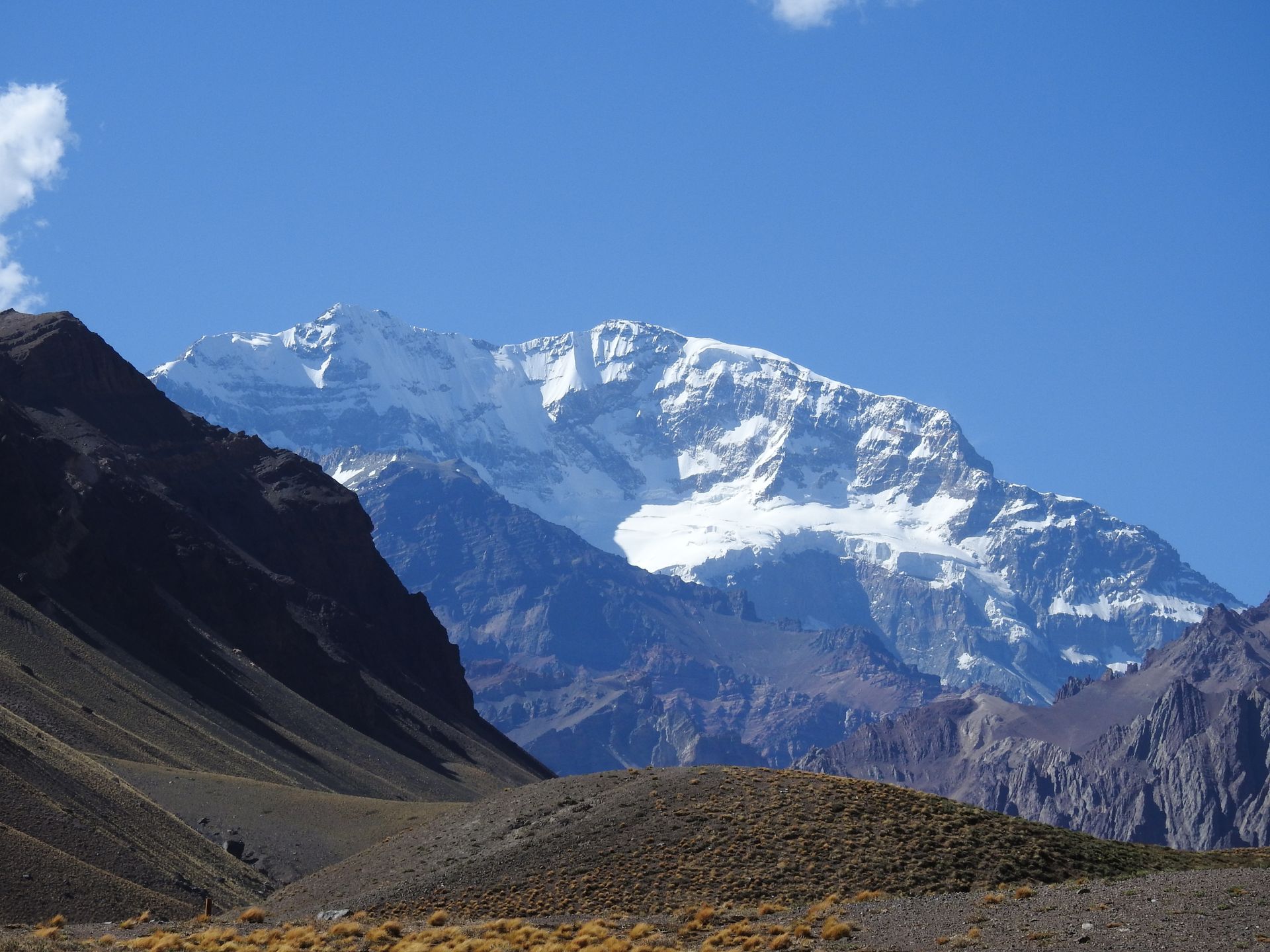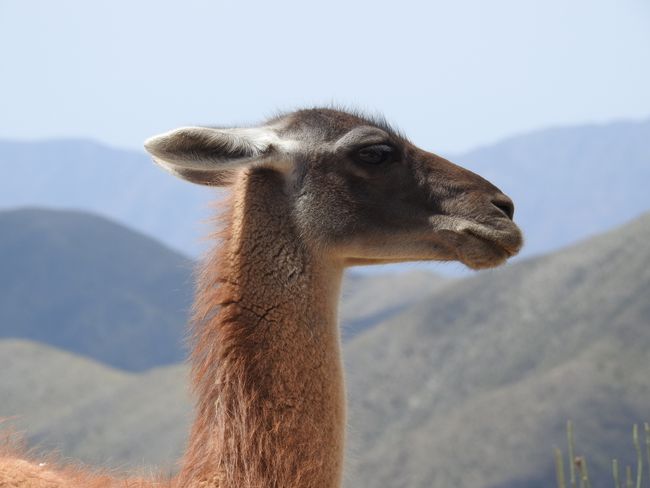BLOG 18 / Southbound on RUTA 40
Objavljeno: 15.02.2020
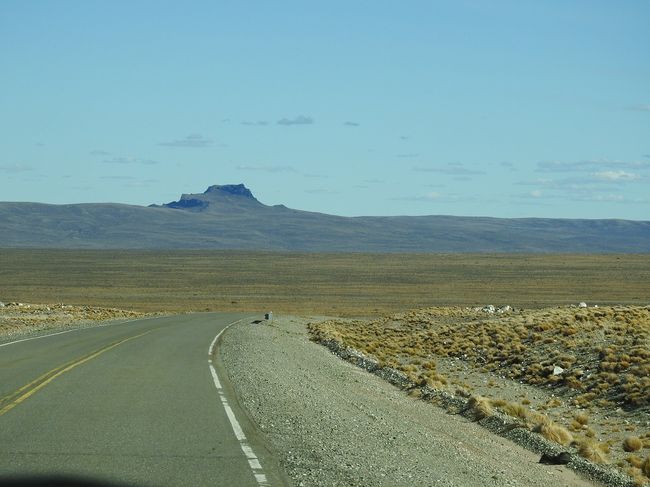
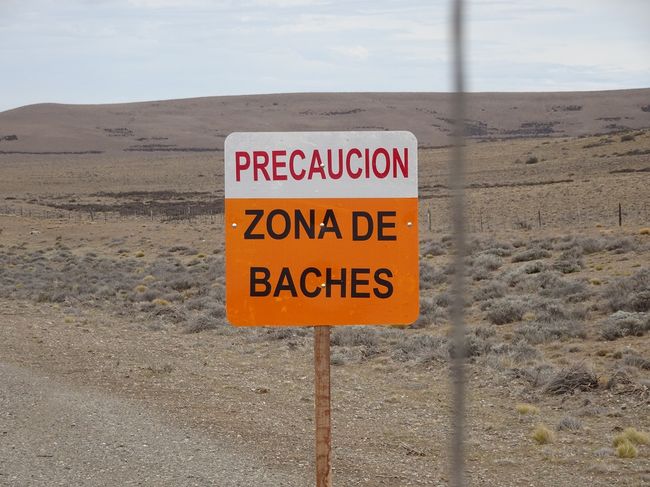
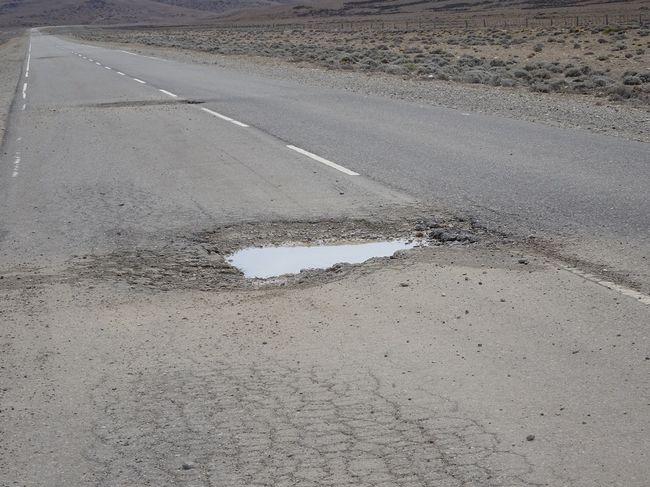
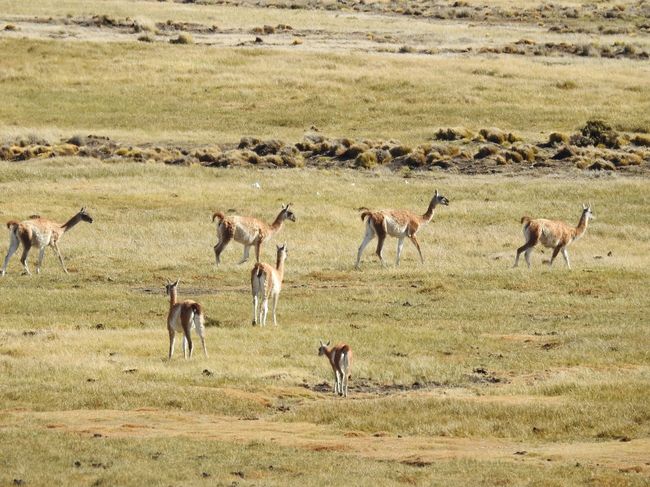
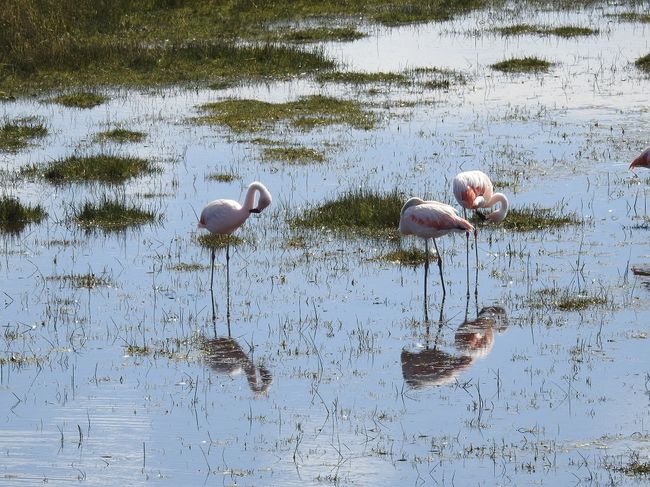
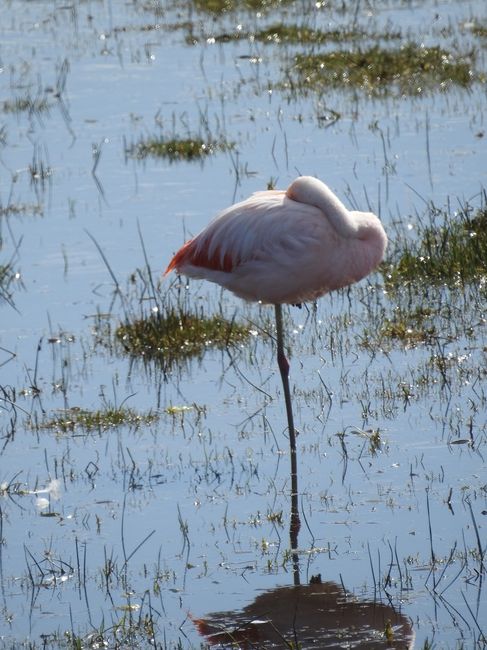
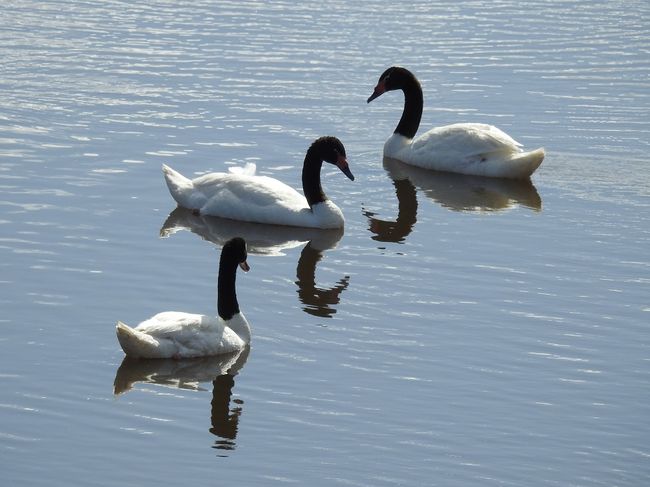
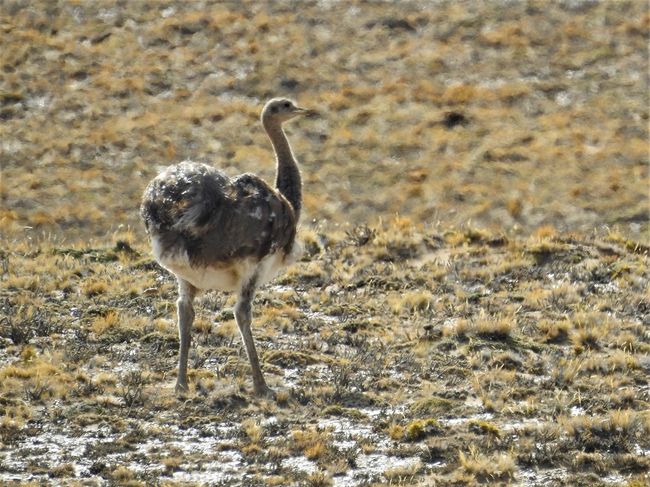
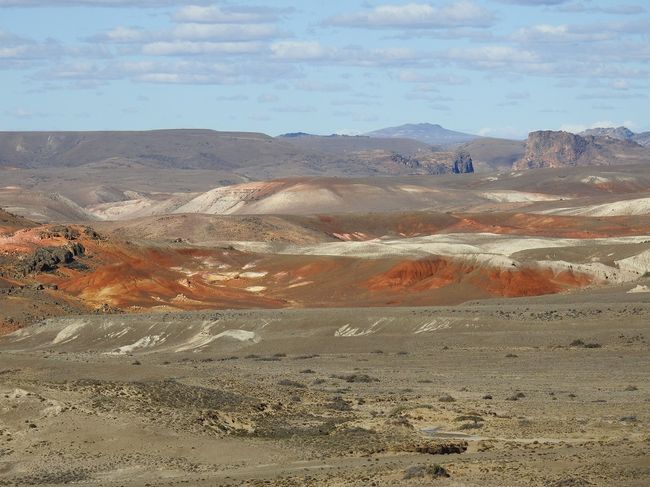
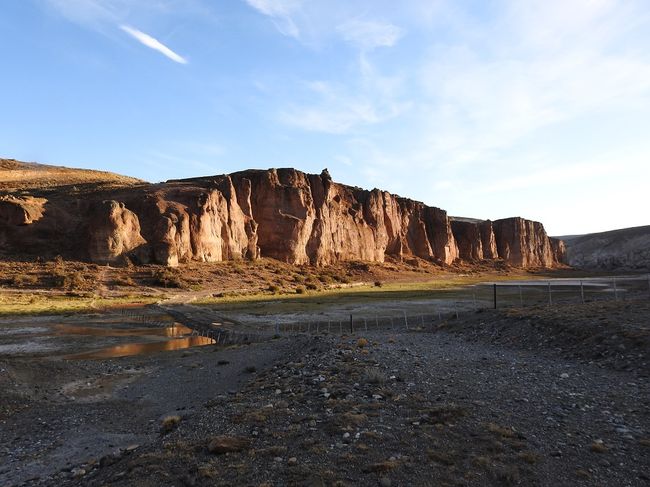
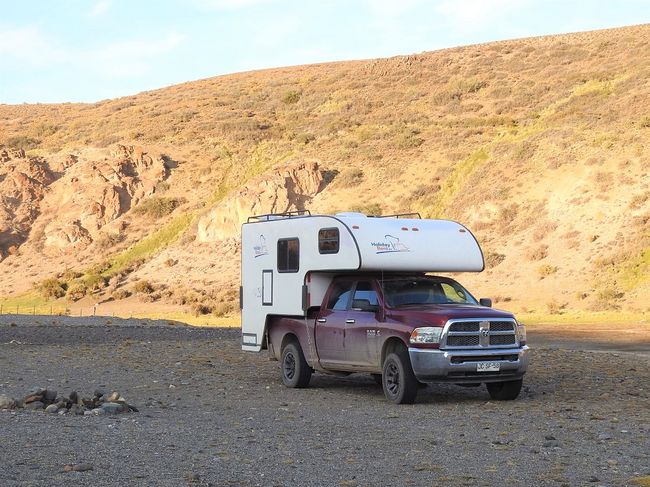
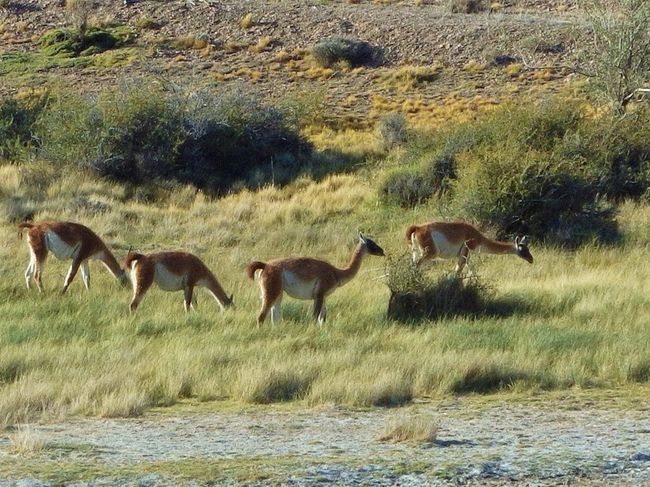
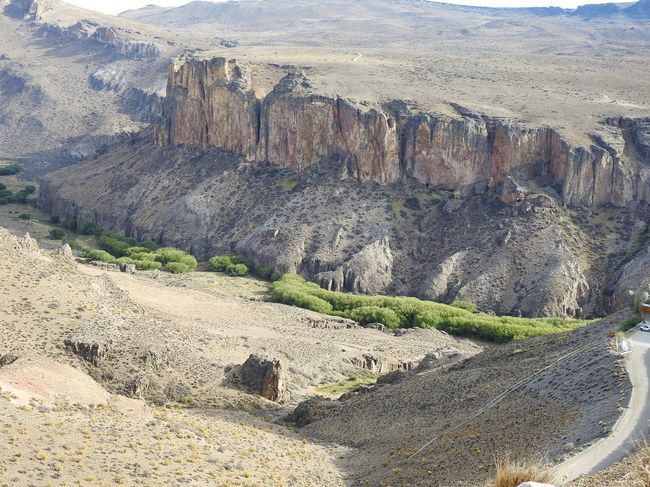
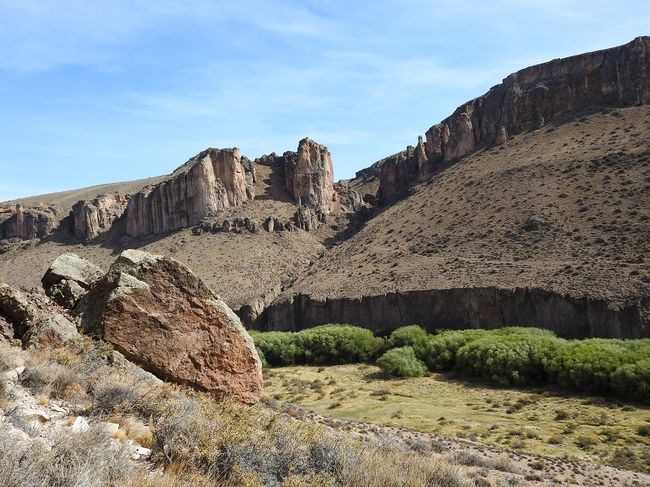
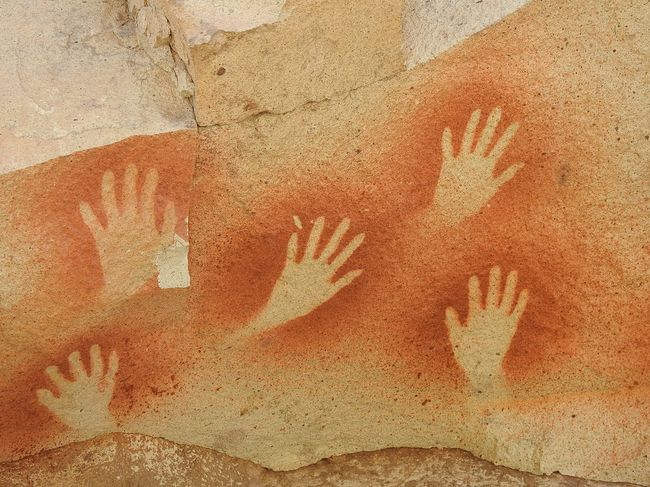
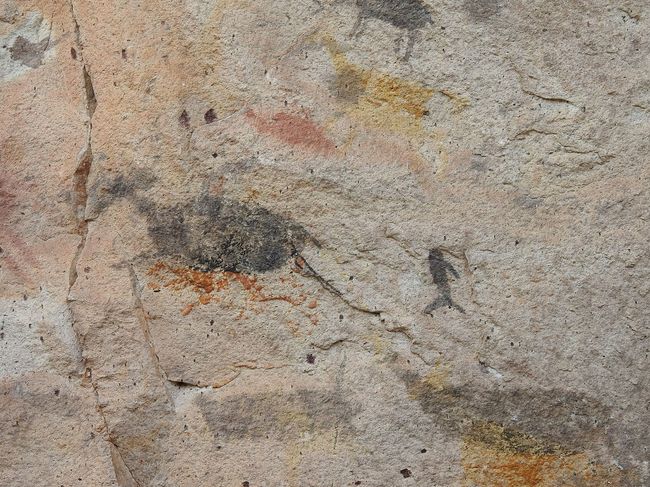
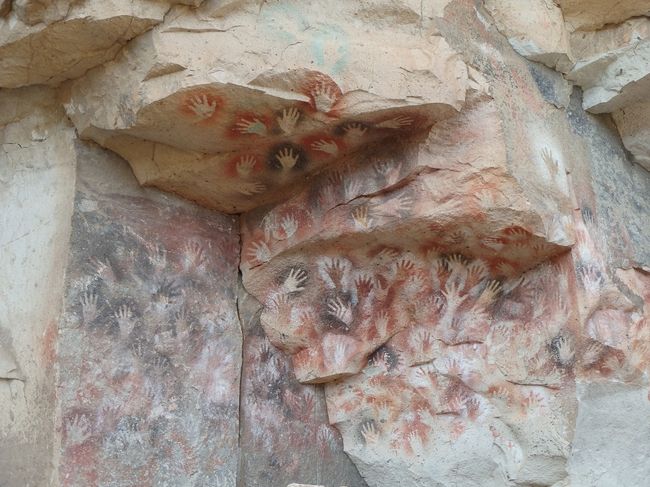
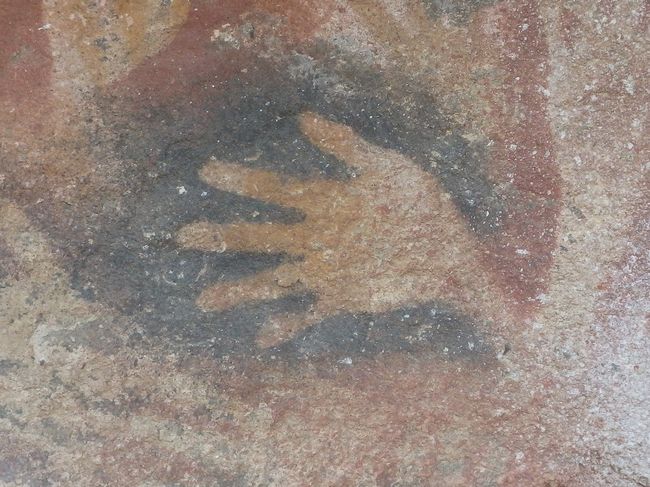
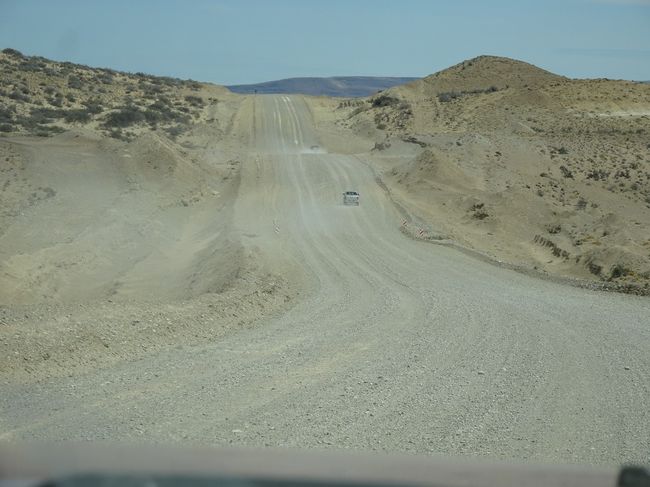
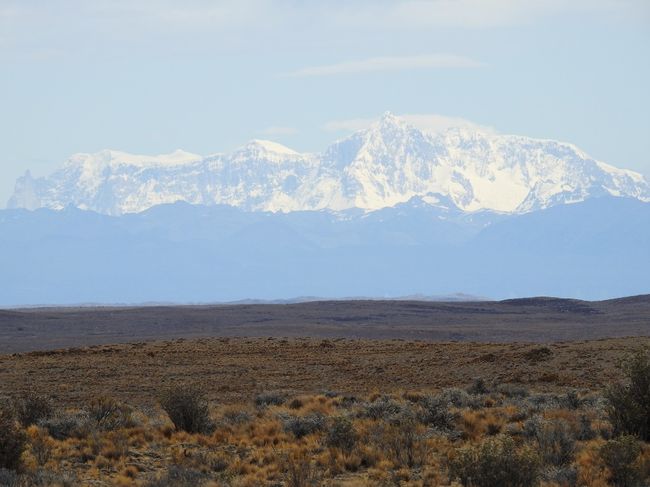
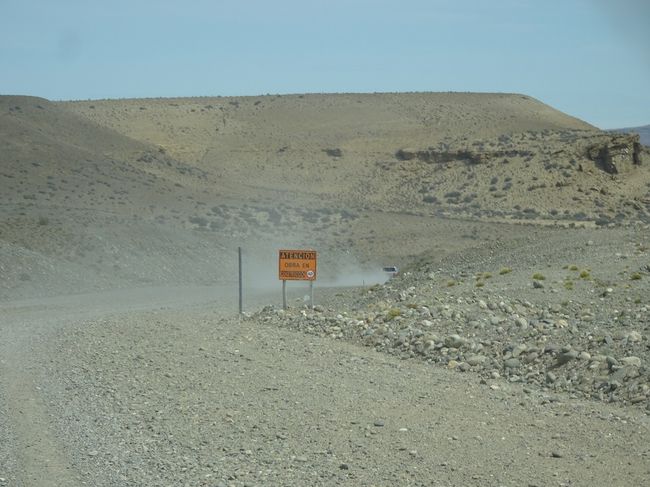
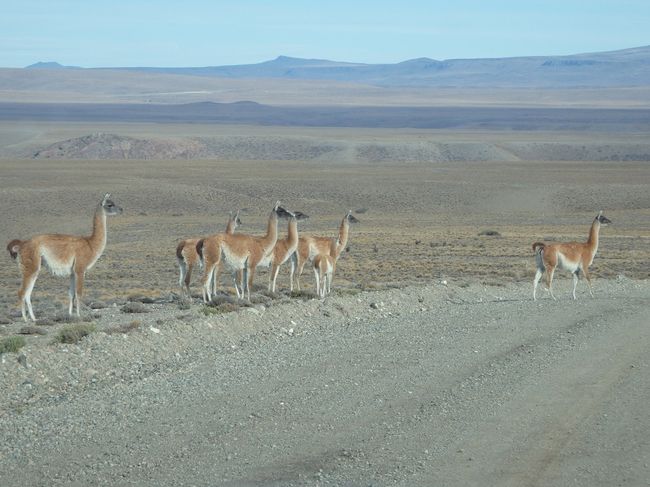
Naročite se na glasilo
Perito Moreno (City) - here you can find diesel, ATM (very important and always a problem in Argentina) and a surprisingly good supermarket. Then we head south on the famous RUTA 40. It is still somewhat okay with mostly asphalt, but there are many "Zonas de Baches" - simply road hole zones - some quite deep.
But there are also other surprises. Unlike Chile, where we hardly see any animals except for horses, cows, and sheep, here in the barren pampas we even come across animals - a pond forces us to make a full stop - flamingos and black-necked swans; guanacos are frequently seen, and there are also two rheas near the road.
In the evening, we leave Ruta 40 and take a gravel road towards "Cuevas de las Manos". We find a beautiful overnight spot in the canyon of Rio Pinturas. Our neighbors are guanacos, but they are not bothered by our presence at all.
The next day, we arrive early at the "Caves of the Hands" to avoid the expected rush of visitors later in the day. Our guided group only has 6 participants, including us - very pleasant. Between 9500 BC and 1000 AD, the indigenous people created cave paintings in four different epochs. These paintings are among the oldest human testimonies in South America.
Soon, we are back on Ruta 40, which really shows its gravel teeth here.
Perito Moreno (the town) - here we get diesel, money from the ATM (always an issue in Argentina), and a surprisingly good supermarket. Then to the south on the famous and infamous RUTA 40. Here it's not so bad, mostly paved - but there are several "Zonas de Baches" - simply zones of road holes - some pretty deep and unexpected.
But there are also other surprises - different from Chile, where we could only see horses, cows, and sheep, here we find animals even in the wasteland of the pampas. A pond requests a full stop - flamingos and black-necked swans. Guanacos are often visible, and we could also see two rheas close to the road.
Towards evening, we leave Ruta 40 for a gravel road in the direction of the "Cuevas de las Manos". We find an excellent overnight spot in the canyon of Rio Pinturas. The only neighbors are guanacos, who completely ignore us.
Next morning, we are early at the "Caves of the Hands" to avoid the expected rush of visitors later in the day. Our group with a guide had only six participants - including us, quite nice.
In the period from 9500 BC to 1000 AD, the indigenous people created wall paintings in four different eras. These paintings are among the oldest signs of human beings in South America.
Shortly afterwards, we are back on Ruta 40 - now showing its real "gravel teeth".
Naročite se na glasilo
Odgovori
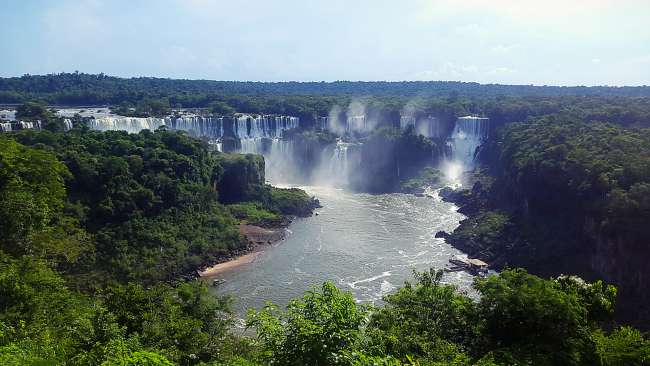
Poročila o potovanjih Argentina
